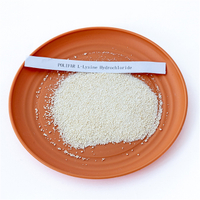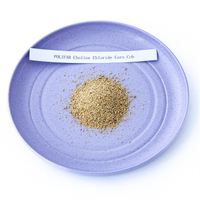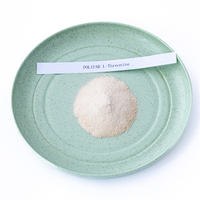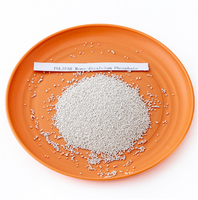Views: 0 Author: Site Editor Publish Time: 2025-02-23 Origin: Site








Liquid methionine is a highly bioavailable essential amino acid in liquid form that can be used as a feed additive for livestock and poultry nutrition. As an essential component of protein synthesis, methionine supports a variety of physiological functions, including growth, immune system function and overall health. Unlike dry methionine, liquid methionine is easier to handle, mix and absorb, making it a convenient choice for modern animal feed formulations.
Methionine has important nutritional value in animal feed. It is one of the essential amino acids for all animals, especially in protein synthesis and various physiological functions. Animals cannot synthesize methionine by themselves, so they must ingest it through feed. Here are some of the importance of methionine in animal feed:
1. Promote protein synthesis: Methionine is a basic component of protein in animals, which directly affects the growth and repair of muscles and tissues.
2. Support the immune system: Methionine plays a role in the immune system of animals, helping to enhance resistance and reduce the risk of disease.
3. Improve feed conversion rate: Methionine supplementation can improve the utilization of feed by animals, optimize growth rate and feed conversion efficiency.
4. Maintain health: Methionine participates in many important biochemical reactions in the body of animals, maintains the normal functioning of physiological functions, and promotes healthy growth.
5. Growth of feathers and hair: For poultry, methionine is particularly important, which helps the healthy growth and protection of feathers.
In short, the supplementation of methionine in animal feed not only supports healthy growth, but also improves the production performance and overall health of animals.
 |  |
When it comes to supplementing animal feed with methionine, there are two primary forms: liquid and dry. Both provide the essential amino acid methionine, but they have distinct differences in terms of handling, absorption, and application. Below is a comparison of liquid methionine and dry methionine to help understand their unique advantages and when each form might be the best choice for animal feed formulations.
1. Handling and Ease of Use
Liquid Methionine: One of the main advantages of liquid methionine is its ease of use. Being in a liquid form, it can be directly mixed with other ingredients in animal feed, leading to more consistent distribution. It’s easier to handle in large-scale feed manufacturing as it flows smoothly and requires less time to dissolve or blend into the feed mixture.
Dry Methionine: Dry methionine, on the other hand, comes in powder or granular form, which requires careful mixing to ensure even distribution. The fine particles can create dust, which may lead to respiratory issues during handling. The process of mixing dry methionine may also take longer and requires specific equipment to ensure uniformity.
2. Absorption and Bioavailability
Liquid Methionine: Liquid methionine tends to have better bioavailability. The liquid form is already in a dissolved state, which allows for faster absorption into the animal's system. This improves the efficiency of methionine utilization and can result in faster growth and better overall health for animals.
Dry Methionine: While dry methionine is still effective, it requires more time to be processed by the animal’s digestive system. This can sometimes lead to slower absorption rates compared to the liquid form, making it slightly less efficient in terms of immediate utilization.
3. Cost and Storage
Liquid Methionine: Liquid methionine can be more expensive per unit compared to dry methionine due to the extra processing involved to produce the liquid form. However, its ease of use and better absorption can reduce feed costs in the long term by improving feed conversion ratios. In terms of storage, liquid methionine requires proper containers to avoid contamination, and it may need to be kept at specific temperatures to maintain its stability.
Dry Methionine: Dry methionine is generally less expensive per kilogram and is easier to store, as it does not require special conditions. However, the cost-effectiveness may decrease if the feed is not formulated and mixed correctly, leading to wastage and inefficiencies.
4. Mixing and Consistency
Liquid Methionine: Liquid methionine mixes easily and evenly with other feed ingredients, reducing the risk of inconsistent supplementation. This consistency ensures that every batch of feed contains the correct amount of methionine, improving overall animal nutrition and performance.
Dry Methionine: Dry methionine requires thorough mixing to ensure uniform distribution, which can sometimes be difficult, especially in large-scale production. Inconsistent mixing can lead to some animals receiving insufficient or excessive amounts of methionine, impacting their health and performance.
5. Environmental Impact
Liquid Methionine: The liquid form of methionine typically results in less waste because it can be used more precisely. This precision leads to more efficient feed conversion, reducing the environmental footprint of animal farming by lowering the overall feed waste and emissions.
Dry Methionine: While dry methionine is still effective, improper mixing or over-supplementation can result in wastage, leading to higher levels of nitrogen in manure and contributing to environmental pollution.
Both liquid and dry methionine have their advantages, but the choice between them largely depends on the specific needs of the feed manufacturer and the type of livestock being fed. Liquid methionine offers superior handling, bioavailability, and consistency, making it a great choice for large-scale, high-efficiency feed formulations. However, dry methionine may still be a more cost-effective option for smaller operations or when more precise dosing is less critical. Ultimately, the decision should factor in cost, ease of use, feed formulation requirements, and long-term performance benefits.
Liquid methionine is a versatile and highly effective feed additive used in the nutrition of various livestock and poultry species. As an essential amino acid, methionine plays a key role in animal growth, health, and productivity. Below are some common applications of liquid methionine in different types of animal feed.
1. Poultry Feed
In poultry, methionine is particularly important for the development of feathers, growth, and overall health. Liquid methionine is commonly used in the following ways:
Growth Promotion: Methionine is essential for protein synthesis and muscle growth in poultry. Liquid methionine ensures rapid and efficient absorption, promoting faster growth rates and improving feed conversion ratios.
Feathering: Methionine plays a critical role in feather development, especially during the early stages of life. Adequate methionine levels help promote healthy feathers, which are crucial for birds' insulation and overall wellbeing.
Egg Production: For laying hens, methionine is vital for egg production and the quality of the eggshell. Liquid methionine supplementation helps improve egg size, shell strength, and overall laying performance.
Immune Function: Methionine supports the immune system in poultry, helping to reduce the risk of diseases and infections, thus improving overall flock health.
2. Swine Feed
Methionine is crucial for pigs, especially during the growth and finishing stages. Liquid methionine has various applications in swine feed:
Muscle Growth and Weight Gain: Methionine contributes to protein synthesis, which is necessary for muscle development in pigs. Liquid methionine ensures that pigs grow at an optimal rate, promoting lean muscle mass and faster weight gain.
Feed Conversion Efficiency: Supplementing with liquid methionine improves the feed conversion ratio (FCR), meaning pigs can convert feed into body mass more efficiently, leading to better performance and reduced feed costs.
Health and Immunity: Methionine boosts immune function, ensuring pigs stay healthier and more resilient against common diseases. This is especially important in high-density farming systems where disease outbreaks are more frequent.
3. Dairy Cattle Feed
For dairy cattle, liquid methionine is important for both milk production and overall health. It is used in:
Milk Production: Methionine is vital for the synthesis of milk proteins. By supplementing dairy cattle diets with liquid methionine, farmers can enhance milk yield and improve the nutritional quality of milk, particularly the protein content.
Reproductive Health: Methionine has been shown to have positive effects on reproductive performance in dairy cows. It supports hormonal balance, improving conception rates and overall reproductive efficiency.
Overall Cow Health: Methionine supplementation is known to enhance immune responses in dairy cattle, reducing the risk of mastitis and other diseases that affect milk production.
4. Beef Cattle Feed
Methionine supplementation is also beneficial in beef cattle nutrition, especially during the finishing phase. Liquid methionine can help:
Improved Growth and Meat Quality: Like in swine, methionine helps in muscle growth and lean meat development. By including liquid methionine in beef cattle feed, farmers can ensure optimal growth and improve the quality of the meat produced.
Enhanced Feed Efficiency: Liquid methionine improves feed efficiency, ensuring that beef cattle convert feed into body mass more effectively, which can lead to faster finishing times and reduced feed costs.
5. Aquaculture Feed
Methionine plays an essential role in aquaculture, particularly for fish and shrimp. Liquid methionine is used in:
Optimizing Growth and Feed Conversion: Methionine is essential for the growth of aquatic species, helping them develop muscle and tissues efficiently. Liquid methionine ensures quick absorption and optimal utilization in aquaculture diets, improving feed conversion ratios.
Improving Immune Response: Methionine supports the immune system in fish and shrimp, promoting better health and disease resistance in aquaculture systems.
Sustainability: By improving feed efficiency and growth rates, liquid methionine helps reduce the environmental impact of aquaculture by lowering the amount of feed required to produce the same amount of edible product.
6. Other Livestock Applications
Methionine can be beneficial in the nutrition of other livestock species, including sheep, goats, and rabbits, to promote:
Healthy Growth and Development: As in other animals, methionine is crucial for protein synthesis and tissue development, ensuring healthy growth and efficient feed utilization.
Reproductive Health: Methionine also plays a role in the reproductive health of other livestock species, helping to improve fertility and reproductive success.
Liquid methionine offers significant economic and environmental benefits. By improving feed efficiency, it helps reduce feed costs and minimizes nutrient waste. Additionally, liquid methionine's efficient absorption lowers the environmental footprint of animal farming by reducing excess nitrogen and other waste products in manure.
Polifar's liquid methionine is a high-quality feed additive that supports animal growth, health, and productivity. With its superior bioavailability and easy handling, it is the ideal choice for improving feed efficiency and achieving optimal results in livestock and poultry farming. Choose Polifar for consistent, reliable, and high-performance liquid methionine solutions.






